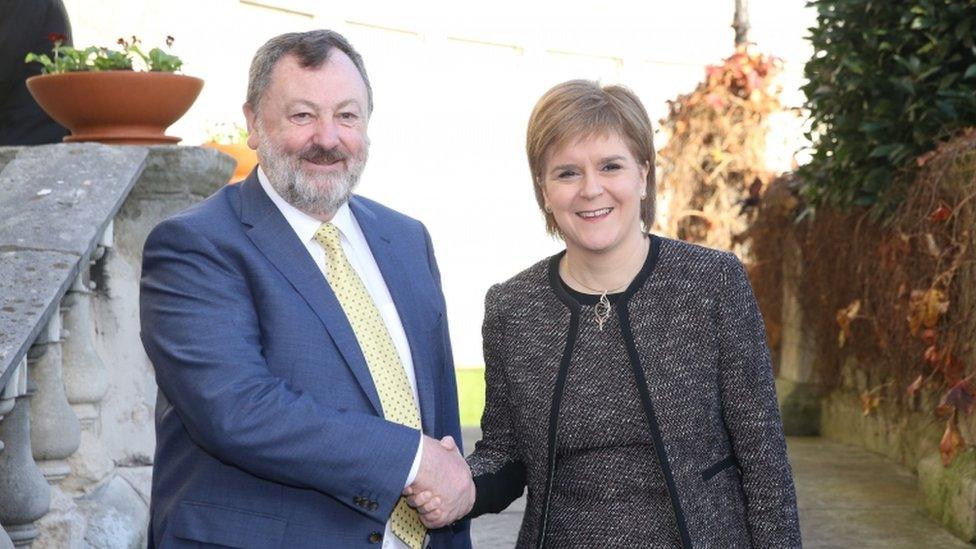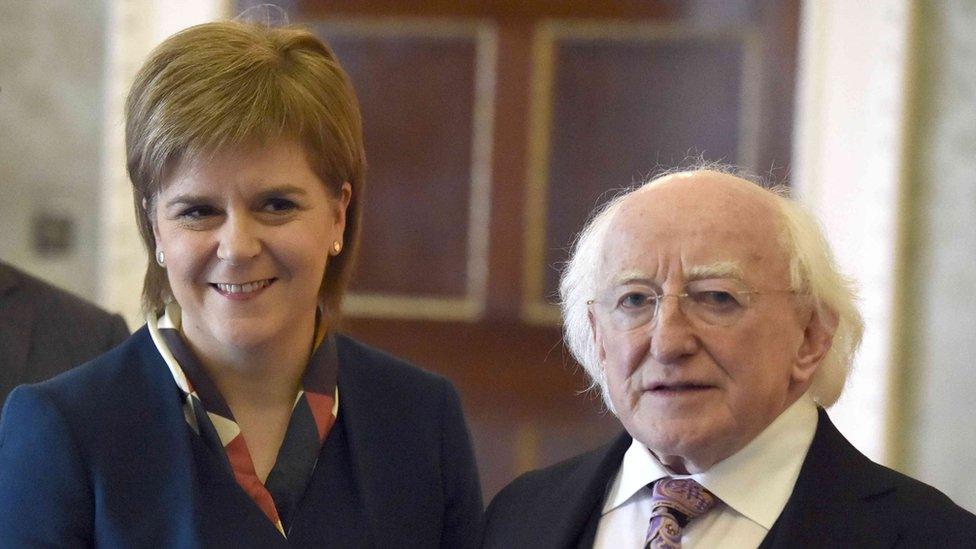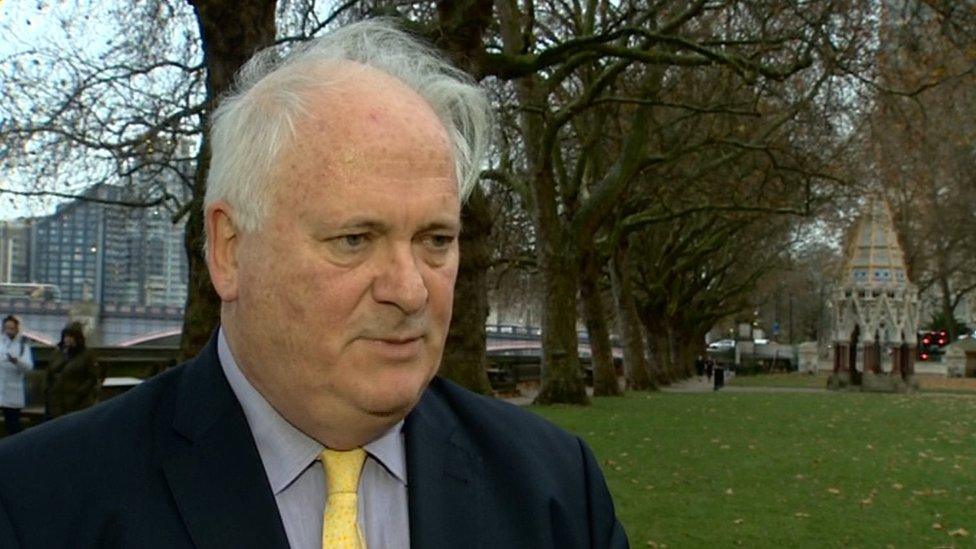Nicola Sturgeon: Brexit 'will define Scotland and Ireland'
- Published
- comments
Nicola Sturgeon says indyref2 is "still on the table" as a response to the UK vote for Brexit
Nicola Sturgeon has told the Irish Parliament that the response to the Brexit vote will define both Scotland and Ireland for generations to come.
Scotland's first minister became the first serving head of a foreign government to address the Senate.
She said that the "unprecedented times" needed "imagination, open minds and fresh thinking".
And she said Scottish independence remained "firmly on the table" - but acknowledged it would not be easy.
Ms Sturgeon is on a two-day visit to Ireland in the wake of the Brexit vote. She is examining possible options for maintaining Scotland's links to the European single market - and has a shared interest with the Irish government in keeping the whole of the UK in the single market.
On Monday, she met President Michael D Higgins and foreign affairs minister Charlie Flanagan. It followed a meeting with Irish prime minister Enda Kenny at the UK-Irish Council last week.
Ms Sturgeon told the Senate - the upper house of the Irish Parliament - that it was clear from those discussions that Brexit was the "greatest foreign policy challenge that Ireland has faced since it joined the European Union."
She added: "For Scotland too, we know that how we, and indeed the UK as a whole, responds to June's vote will define us for generations to come."
The first minister repeated her calls for the UK as a whole to seek to continue as a member of the single market and the European Customs Union, pointing out that 48% of voters had chosen to remain in the EU.
She said the Scottish government was "exploring options" that would "respect the vote in Scotland and allow us to retain the benefits of the single market".
And she said these proposals, which are due to be published by the end of the year, would focus on options for Scotland within the UK.

Ms Sturgeon was welcomed by Cathaoirleach of the Seanad Senator Denis O'Donovan
Ms Sturgeon added: "Of course, there is also the option of considering again the question of becoming an independent country.
"And that option of course remains firmly on the table. If the path that the UK takes turns out to be deeply damaging to Scotland's best interests, to our economic, social, and cultural interests, then the people of Scotland must have the right to choose a different future."
She also said she "acutely understands" that "none of what lies ahead will be easy", but said that nothing about Brexit was going to be easy either.
The first minister said: "We are living today in unprecedented times, and those unprecedented times require imagination, open minds and fresh thinking."

Analysis by Glenn Campbell, BBC Scotland political correspondent
The question here in Dublin is could Ireland help Scotland to get some sort of special deal out of Brexit?
Last night, the Irish foreign minister, Charlie Flanagan, said that the Irish government was anxious to be helpful to Scotland when it comes to Brexit.
But he didn't say whether or not that would mean backing special arrangements for Scotland.

Scotland voted to stay in the EU - by 62% to 38% - with every single council area backing the Remain camp.
Ms Sturgeon said: "Scotland's experiences in Europe have not, of course, been identical to Ireland. We are not an independent member state - yet.
"But the sense that small countries can be equals in a partnership of many is something that appeals to us about the European Union.
"And so the basic principle of EU membership, that independent countries cooperate for the common good, has generally seemed to us to be praiseworthy rather than problematic."
She had earlier told the Senate that the historical links between Scotland and Ireland had created a "special and unbreakable bond".
'More harmonious'
And she said relations between the two countries were now "stronger, warmer and more harmonious" than ever, and would be strengthened even further in the years ahead.
Scottish Conservative leader Ruth Davidson welcomed Ms Sturgeon's efforts to promote greater ties with Scotland's closest international neighbour.
She added: "However, the problem is that this correct approach is entirely defeated by her own plan to use Brexit to hold a second independence referendum.
"None of the questions thrown up by Brexit will be answered by tearing up our own UK union.
"If the First Minister really wants to promote Scotland's interests post-Brexit, she would reassure our friends in Europe and around the world that her plan for yet more division and upheaval is taken off the table."
Ahead of her speech to the Senate, Ms Sturgeon confirmed that her government was examining ways for the Scottish NHS to offer abortions to women from Northern Ireland free of charge.
Ms Sturgeon first outlined the proposals in response to a question in the Scottish Parliament earlier this month.
Abortions are illegal in Northern Ireland except for cases where the woman's health is at risk. The situation has led to women travelling to Great Britain seeking terminations.
- Published28 November 2016

- Published28 November 2016
